Zuckerberg's Mystical, Magical Metaverse is Everyone's Hell on Earth
Lex was all like "so you could theoretically speak with passed loved ones, right?" and Zuck's all like "yeah, that's known as playing god which we may get in trouble for developing".
One-time or recurring donations can be made at Ko-Fi.
You can listen to me read this essay here:
It was just another ordinary night on Starburst Road…
Or was it?
Life has never been ordinary for me. It’s always been an adventure. I’ve written a lot of stories and painted a lot of pictures over the years, inspired by those adventures and fueled by imagination.
It’s a little sad that I have no time for my art these days. I got caught up in this writing which has taken over my life, and for good reason. I will get back to my art when the time is right.
Ever since I discovered pencils and blank pieces of paper as a little girl, I’ve been drawing. My older sister Janna was the storyteller.
One time, I was maybe around nine years old, and she was around eleven, we were up in Yosemite, staying in a cabin, which we did many summers, when she told me that she knew the Hardy Boys. We were both voracious readers and were reading The Hardy Boys mysteries at the time. Of course, she liked Frank Hardy since he was the older one, and I really had no choice but to like Joe, which was fine by me.
When she told me she actually knew them, I pleaded with her, practically on bended knee, to please introduce me, please, please, please! I begged and begged, to no avail. She always had some excuse—just like she did a couple of years later when we lived in that castle in Switzerland and she told me she knew Robin Hood, and I was again suckered in.

Oh, Janna said with great regret, Frank and Joe were only in Yosemite for a couple of days, working on a case. They couldn’t be disturbed by just anybody. But I wasn’t just anybody, I cried. Well, yes, but they were so famous, they didn’t want people to know they were there. But of course, they trusted my sister, so they’d met up with her just once, in the woods near our cabin. When I asked if Joe had said anything about me, she said yes, he would have really liked to meet me, except they’d had to leave. Maybe I could meet him another time. I was devastated yet exhilarated. Joe wanted to meet me. Wow. It would happen, I just knew it would….
Of course, I never did meet Joe, just like I never met Robin Hood, but it didn’t really matter. I had my dreams and they kept me happy. I loved all the stories Janna told me. I eagerly went along with them. In my heart, I knew none of it was true, but actually, in a way, it was, because I could make it so with my imagination.
Those were great days. We spent hours every day outdoors, enacting the stories we made up. And then, in quiet times in my room, I would gather my art supplies around me, lie on the floor and draw and draw. I got books on anatomy and practiced drawing hands and feet, I got books on horses because they were my favorite animal (what young girl doesn’t love horses) and drew them. I read all the fairytales I could find and drew pictures inspired by the stories. There was no TV, certainly no AI assistant, no distractions from the Vast Machine. It was just my imagination and whatever I decided to do with it.
I wasn’t thinking about what I wanted or about what I absolutely had to have. I wasn’t obsessed with how I looked or what other people thought of me. I wasn’t drawing so that I could put it on social media and see how many likes I got from strangers to whom I had no connection but whose opinions were more important to me than those of my own family. I drew because I loved it. There was nothing pulling me away from the purity of fulfilling my own dreams, exactly as I had created them, nobody else.
It breaks my heart that children growing up today will never know what it means to have a free mind, completely uncluttered by voices that are always there, whispering, yelling, threatening, always invading their consciousness, voices telling them what to buy, how to act, badgering them to falsify themselves, berating them that they are not real and complete, that they are lacking, always lacking, but that they can be anything they want if they just buy this thing or add this app or take this pill or even cut into their skin. The voices never stop, creating a bottomless pit of self-obsession, self-adulation, and self-pity, obsessions that can never be satisfied; the ultimate addiction because they are always, always there and must be fed by anything and everything, forever.
“I kind of think social media is a psychological experiment that is deranging us.” -Sam Harris in a conversation with Eric Weinstein on Triggernometry
Yes, the derangement is all around us. In all of us if we engage at all on social media. If it’s this bad now, imagine what it will be like for the next generation and then the next.
Meta is being sued by 33 States over ‘Substantial Dangers’ for kids on Instagram and Facebook
The suit claims that Meta has “profoundly altered the psychological and social realities for a generation of young Americans,” including by creating technologies to “entice, engage and ultimately ensnare youth and teens” in an effort to generate profit.
There isn’t much talk about the insidious melding of reality with fantasy, with the goal of there being no more distinction between the two; to capture children especially into this fake world and imprison them there. Those children will then become adults, and they will have children, perhaps grown in pods and watched over by machines. Who knows. All of us who lived before the rise of the machines will be long gone. Not only will the children of tomorrow not remember what it was like to have free minds, they will have never known that such a possibility even existed. Perhaps by then, all stories related to such freedoms will be wiped out. The very idea of reality without the input of the Vast Machine inside their heads will be something they cannot even comprehend. A silly conspiracy theory.
In a recent Lex Fridman interview, Mark Zuckerberg, or Zuck as he’s referred to, talks about this future with a childlike enthusiasm that I have noticed among others like him, such as Ethereum founder Vitalik Buterin. They are grown-ups now, yet they still seem eerily childlike, as if they never really left the basements where they played video games as teenagers, and they want us all to descend those stairs with them and stay in the dark while they turn their childhood fantasies into our realities, using us as pawns in their games.
Just like Sigmund Freud did when he transferred his own psychological problems onto everyone else, insisting that if he had an issue with his mother or with women in general, all men must have the same issue and all women must agree with his twisted diagnosis of them because it fits with his disturbing fantasies.
I’m not sure why anyone would give credence to these psychotic individuals, allowing them to invade their minds instead of keeping control of themselves, but for some reason, many people do.
Zuck wants us all to know that the real world isn’t….
Well, it just isn’t.
Calling this world “real” implies that the Metaverse is fake and that is unacceptable. He promises to lead us into a new era where both worlds are embraced equally so that they become indistinguishable.
Imagination is supposed to be a place to go that gives relief from reality. Ordinary folk have control over this escape, they can go there and come back again whenever they want. You can read a book or watch a movie, forget all about your daily life for a few hours, and then come back to it. But Zuck wants to make those two worlds one. Or actually, he wants to remove your imagination entirely and your control over it. It will just be the Vast Machine—fed with his ideas—reading your mind and then regurgitating those thoughts back to you until you have no more individual thought at all.
It’s the ultimate Ouroboros, the snake devouring itself endlessly.
There will never be any escape from this nightmare. There will never be any relief. I am not a psychiatrist, but I know instinctively that this is surely the road to madness. Once imprisoned in this world, the mind will break completely.
I don't want a future like this for my children and my grandchildren.
I have so many stories I’ve written and illustrated over the years, some of which were never published. I hope for the day when they will be discovered, and people lose themselves in those magical worlds as they turn the pages, forgetting the reality all around them. But will the children of the future even recognize such a possibility?
One story is called Orgle the Terrible. I wrote it during my dark days living in London, in the 1980s. This was an extremely creative time for me. It’s the dichotomy of the artist. Pain and suffering seem to bring out the best in us. My husband at the time (a singer), constantly belittled me, telling me I was a terrible artist. I would never be any good. I was an embarrassment.
My imagination saved me. I just kept on writing and drawing, there was nothing else I could do. If I stopped, I might as well have stopped breathing.
When my eldest son picked up a pencil as a small child, just as I did, and started to draw and couldn’t stop, I had mixed emotions. Oh no, he is an artist, I thought. It will not be an easy life. But oh, it will give him such drive, such passion, such purpose.
Orgle the Terrible is about a girl named Cordelia who needs glasses, and she isn’t happy about that. Yes, she wants to see the world more clearly, but seeing more clearly also means that cruel kids will make fun of her, and she doesn’t want that to happen.
Much as she’d like it to be otherwise, Cordelia has no choice but to go to the optometrist, a very odd old man, who chooses her glasses not by an eye exam, but by asking her some questions and then taking a book from the many bookshelves and matching it with a pair of glasses.
Cordelia takes the book and the glasses home. As the optometrist instructed her, she sits down that evening, puts on the glasses, opens the book, and begins to read…
The book is about Orgle the Dragon and Percival the Knight and a very annoying King and Queen. As she reads, Cordelia is delighted at how clear the words are, so clear, in fact, that before she realizes it, she is inside the story, finding herself in front of the dragon…
encountering a cowardly knight…
and standing up to the king and queen, along with the corrupt and greedy courtiers who resist any change to their kingdom, no matter how much happier everyone will be because of it since it will mean they lose their power.
Everyone in the kingdom, most of all the ordinary people and the dragon, have lived under lies for so long, it’s as if they are under a spell. In fact, they are under the spell of the evil wizard. Cordelia knows she must break the spell but how to do it?
How, indeed.
Such stories are passe now. I mean, honestly, what could be more old-fashioned than a dragon, a knight and a king and a queen. The youth of today have graduated from reading books, to wearing devices like this to play games.
If Zuck has his way, the youth of tomorrow will be wearing these Ray Bans, or something similar. All day long, every waking minute. Glasses that meld reality with fantasy.
Zuck wants these glasses to take the place of your smart phones. Imagine one day when the technology is implanted into your eyes, along with Elon Musk’s microchip in your brain. And you have your own personal AI assistant inside your head. You might sleep but it never does. Who will you be then?
Mustafa Suleyman, the co-founder of DeepMind, Google's AI division, now the CEO of Inflection AI, the tech startup behind an AI chatbot called Pi, said that everybody will have access to an AI that "knows you," is "super smart," and "understands your personal history."
Yes, it will “help you prioritize your time, help you invent, be much more creative. It will be a research assistant, but it will also be a coach and companion."
Suleyman gives an example of how your AI companion will “help” you:
“If you start complaining about immigrants in your community taking your jobs, Pi’s not going to call you out and wag a finger at you. Pi will inquire and be supportive and try to understand where that comes from and gently encourage you to empathize. You know, values that I’ve been thinking about for 20 years.”
And if you disagree with the advice your coach/companion gives you?
Will it also be your judge and jailor. Will it diagnose and report you and insist you undergo rehabilitation?
Ditching the smart phone for something that you never take off, like Zuck’s glasses or Musk’s microchip, or a smart skin such as the one developed at Stanford University that allows people to type on invisible keyboards, identify objects by touch alone, or allow users to communicate by hand gestures with apps in immersive environments—is the future our children can look forward to.
Smart phones were once so convenient but now they aren’t convenient enough. “I think the fact that we basically take this thing out of our pocket and kind of have our head stuck in it for a while is just not how we all want to interact,” says Zuck.
In the nightmarish future where AI knows and controls everything, phones are not going to cut it. After all, they can still be turned off and put away. Progress means becoming one with the machine and smart glasses (or something similar) is the next step.
Why Facebook is using Ray-Ban to stake a claim on our faces.
To build the metaverse, Facebook needs us to get used to smart glasses.
Ray-Ban Stories are a step toward Mark Zuckerberg’s long-term vision for Facebook, which is to realize and participate in the “metaverse.” Venture capitalist Matthew Ball describes the metaverse as a space of “unprecedented interoperability” with a seamless, integrated economy. Zuckerberg explained it as a shared space that unifies many companies and mediated experiences, including real, virtual, and augmented worlds.
Zuckerberg calls Ray-Ban Stories “one milestone on the path” to immersive augmented-reality (AR) glasses. In 2020, Facebook announced Project Aria, which uses AR-enabled glasses to map the terrain of the public and some private spaces. This mapping effort intends to build up geolocation information and intellectual property to feed the data needs of future AR glasses wearers—and likely advance Facebook’s contribution to the metaverse.
With Ray-Ban Stories, we can’t always know who is recording, when or where they are doing it, or what will happen to the data they collect.
People using Ray-Ban Stories may also be subjected to additional surveillance.
These glasses are Facebook’s first step toward building a complete hardware ecosystem for the company’s coming attempts at creating the metaverse. With Ray-Ban Stories, it has gained new capabilities to collect data about people’s behavior, location, and content.
If Facebook adds facial recognition to these glasses in the future, as the company is reportedly considering, people will have to find new countermeasures. This robs us of our peace.
To illustrate just how amazing Zuck’s vision is, he gave his “First Interview in the Metaverse” on the Lex Fridman Podcast. Watch at least part of it. It will freak you out. Understand that they are in the Metaverse. They are not real, yet they look and act almost realer than their real selves.
Zuck:
We’re moving toward a world where, you know, we’re gonna have something that looks like normal glasses where you see the physical world but you also see holograms. And in that world I think that there are gonna be, not too far off, maybe by the end of this decade we’ll be living in a world where there are kinda as many holograms when you walk into a room as there are physical objects. And it really raises this interesting question about, you know, a lot of people have this phrase where they call the physical world the real world. And, you know, I kinda think increasingly, yeah, the physical world is super important but I actually think the real world is the combination of the physical world and the digital worlds coming together. But until this technology they were sort of separate, right? It’s like you had access to the digital world through a screen and maybe it’s a small screen that you carry around or it’s a bigger screen when you sit down at your desk. But they’re kind of fundamentally divorced and disconnected. And I think part of what this technology is going to do is bring those two together into a single coherent experience of what the modern real world is, which is, it’s gotta be physical because we’re physical beings so the physical world is always gonna be super important. But increasingly I think a lot of the thing that we kind of think of can be digital holograms. Any screen that you have can be a hologram. Any media, any book, art, can be just as effective as a hologram.
Zuck gives an example of something that’s “really powerful”, like being able to snap your fingers and have a ping pong table appear and then snap your fingers and have it gone.
Is this the most honest example Zuck can give? Is this what he did as a teenager, on the computer late at night? I don’t think so. Out of all the things a sixteen-year-old boy, or a fifty-year-old man for that matter, would make appear if he could, would be a ping pong table?
I’m not going to put any of the links here, but I did a simple search for “AI sex bots” and came up with this:
Anyone can make this search, and you can bet kids know how to access much worse than this. Much, much worse.
Did you know that the web you surf is only a tiny portion of what is out there, and your kids know it much better than you do? The Deep Web makes up about 99% of the entire web and is largely inaccessible to normal users. It contains everything from password-protected sites and data not accessible via public web pages to private intranets, academic content, and more.
Then, there is the Dark Web, a “guarded subspace within the deep web, hosting encrypted websites that are accessible only via specific browsers. This portion of the web is commonly associated with illegal activities such as arms and drug trafficking, scams, and espionage”.
What they aren’t telling you are the nightmares that exist in that darker space where all things are possible, and nothing is taboo. I will leave it at that because I do not want to give that space credence, nor the horrors that exist there.
I will just say generally that, according to MIT Technology Review, cybercrime is a massive global problem. The financial cost in the US alone has increased more than 100 times in the last decade, according to some estimates. Reports show that the economy in nonconsensual deepfake porn is booming. Drugs and guns are marketed on social media.
All of these things are marketed directly to children. The 2023 Child Online Safety Index (COSI) found that “nearly 70% of children and adolescents aged 8-18 worldwide have experienced at least one cyber risk incident in the past year”.
The NSPCC regularly receives thousands of messages like these:
"I recently came across this section on Twitter which was all about weight loss and had threads on how to starve yourself. It also had pictures of extreme waists and stuff. This really affected me, to the point that I had to delete the app entirely. Ever since I’ve been feeling strange about myself and my body." — Girl aged 17, Childline
"My 17-year-old son was sent an inappropriate message on Discord by someone they don’t know. This person disclosed how they liked to cut themselves – they then sent pictures of what appeared to be self-harm injuries. My son hasn’t been able to get the images out of his head and he’s been having trouble sleeping. I’m wondering how best to handle this situation?"— Mother, NSPCC helpline
Imagine a world in which reality and fantasy blend seamlessly together and you can no longer distinguish the difference.
Long before such a world existed, C. S. Lewis imagined it in his children’s book, The Voyage of the Dawn Treader. I’ve talked about it in another essay, Empire of Deceit, but it bears repeating.
The heroes of the story are sailing to the ends of the earth on a grand adventure. Along the way, they come upon the Island where Dreams Come True.
Everyone on the ship is excited. This, surely, is a wondrous place that they must explore! As they look out into the fog surrounding the island, making it impossible to see but a few feet ahead, they realize there is a man flailing about in the water. They rescue the man and when the sailors eagerly ask him about the island, the man responds thus:
“Fly! Fly! About with your ship and fly! Row, row, row for your lives away from this accursed shore. This is the Island where Dreams come true.”
“That’s the island I’ve been looking for this long time,” said one of the sailors. “I reckon I’d find I was married to Nancy if we landed here.”
“And I’d find Tom alive again,” said another.
“Fools!” said the man, stamping his foot with rage. “That is the sort of talk that brought me here, and I’d better have been drowned or never born. Do you hear what I say? This is where dreams–dreams, do you understand–come to life, come real. Not daydreams: dreams.”
There was about half a minute’s silence and then, with a great clatter of armor, the whole crew were tumbling down the main hatch as quick as they could and flinging themselves on the oars to row as they had never rowed before; and Drinian was swinging round the tiller, and the boatswain was giving out the quickest stroke that had ever been heard at sea. For it had taken everyone just that half-minute to remember certain dreams they had had–-dreams that make you afraid of going to sleep again.
In the course of the conversation with Zuck, Lex does seem to have some worry about what the future might hold when reality becomes blurred with fantasy. Zuck, on the other hand, gives such worry nothing more than a passing thought, refusing to dwell on anything but his shiny toy that he is sure he can control for the good of mankind.
No, no, no. Don’t worry. It will just be ping pong tables.
Lex keeps exclaiming about how real everything is. How real Zuck looks. The two of them then discuss how people are going to change their appearance. They already do that on social media. Nobody shows what they really look like. Unless you are naturally incredibly handsome or beautiful, you are going to enhance yourself. In fact, even if you are incredibly handsome or beautiful, it will no longer satisfy you. The most beautiful woman will never be as perfect as AI can make her.
Build your fantasy avatar.
Just imagine the headaches that will arise when people are interacting in this way. Someone could impersonate you. Someone could create a clone of your avatar. Perhaps avatars will have to have their own identity cards, and insurance cards. Successful avatars will be worth a fortune. Could you sell your avatar to someone else who takes it over? Like selling a house or a car? Or perhaps a better example would be like a painting created by a famous artist sells for millions of dollars. Could someone sell an avatar in the same way?
People already have perceptions of themselves, they have good days and bad days. Their weight goes up and down. But these things don’t happen for no reason. In the real world if you eat too many cookies, there will be consequences. That isn’t how it works in the virtual world. There are no consequences for bad behavior or bad habits.
Psychologists will have a field day coming up with theories about how this will change our perceptions of ourselves. Who are we really? The real person or the avatar. Who has more value?
Celebrities including Kendall Jenner, Tom Brady, YouTube creator James "MrBeast" Donaldson, and TikTok star Charli D'Amelio can have AI bots made of themselves that their fans can pay to interact with.
Kendell Jenner’s chatbot is called "Billie," who says on her Instagram page that “chatting with me is like having an older sister you can talk to, but who can’t steal your clothes 🙃”
This has people rather confused and asking the question, why is some chatbot named Billie look like Kendell Jenner?
I don’t know.
Then, we get to the part in Zuck’s interview where Lex asks what about when a loved one passes away but still exists in the metaverse, can you have conversations with them. Lex says that’s one of the things his mind first jumped to, because, as he says over and over, this is so real.
Zuck says there are a lot of norms that people have to figure out around that (you think?). To be able to interact and relive experiences with a loved one could be helpful, but it could also be unhealthy.
We have a fair amount of experience with how to handle death and identity on social media. People die every day, and we try to give family access to certain things, but other things are private, like, we’re not going to give them access to private messages.
And that’s where we get to the quote that I gave at the beginning of this essay.
Lex says, "yea so you could theoretically speak with passed loved ones, right?" and Zuck's all like "that is known as playing god which we may get in trouble for developing".
The weirdness of watching them sit there with these clunky things on their heads talking without eyes, the most important body part for communication. Alone in a room. It’s just creepy.
Lex describes looking at a creation of himself, being able to move around himself, teaching a copy of himself to do things, it’s a fundamentally new experience, like experiencing color for the first time.
It’s the early days of a totally new way of living.
I will close with IG @peaceful_buddha’s comment that he wrote after watching the video:
“The more we integrate ourselves into this virtual space, the murkier the lines between our digital identities and our 'real' selves become. If our avatar is younger, fitter, or perhaps entirely different from our physical selves, how does that skew our self-perception? And, as intriguing as interacting with deceased loved ones might sound, could it prevent us from truly processing grief and moving on? On a philosophical note, this immersive technology makes me question: What is "real"? Is 'reality' only what we touch, see, and hear in our physical environment? Or is it perhaps what we perceive and feel, regardless of the medium? The metaverse seems to argue for the latter. It's fascinating and terrifying at once. Imagine the implications for education, mental health, even crime. But what truly captivated me was the potential of blending AI with VR. AI replicas of oneself for community interaction? Ethical quandaries abound. It's a slippery slope, and the potential for misuse is as vast as its potential for good.
Lastly, while Zuckerberg and the speaker praise the blending of the physical and digital, I can't help but ask: Are we forsaking our connection to the organic world, the feel of grass beneath our feet, or the real laughter of a loved one? And in this rapid tech evolution, where do traditional cultures, human nuances, and the age-old wisdoms we've passed down fit in? Nonetheless, the strides made in this domain are nothing short of breathtaking.”
Yes, yes, just as the adventurers in The Voyage of the Dawn Treader were at first so excited to come upon the Island where Dreams come True, living in a world that merges reality and fiction seems marvelous and yet, once you are actually ensnared by it, you will discover it is nothing but hell on earth.
I’ll stick to my imagination where “It was just another ordinary night on Starburst Road” turned into this fantastical race through outer space:
“If you are a dreamer come in
If you are a dreamer a wisher a liar
A hoper a pray-er a magic-bean-buyer
If you’re a pretender come sit by my fire
For we have some flax golden tales to spin
Come in!
Come in!”
― Shel Silverstein




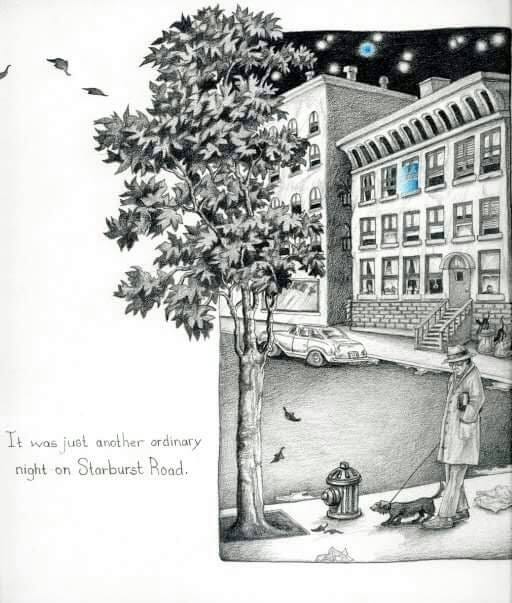
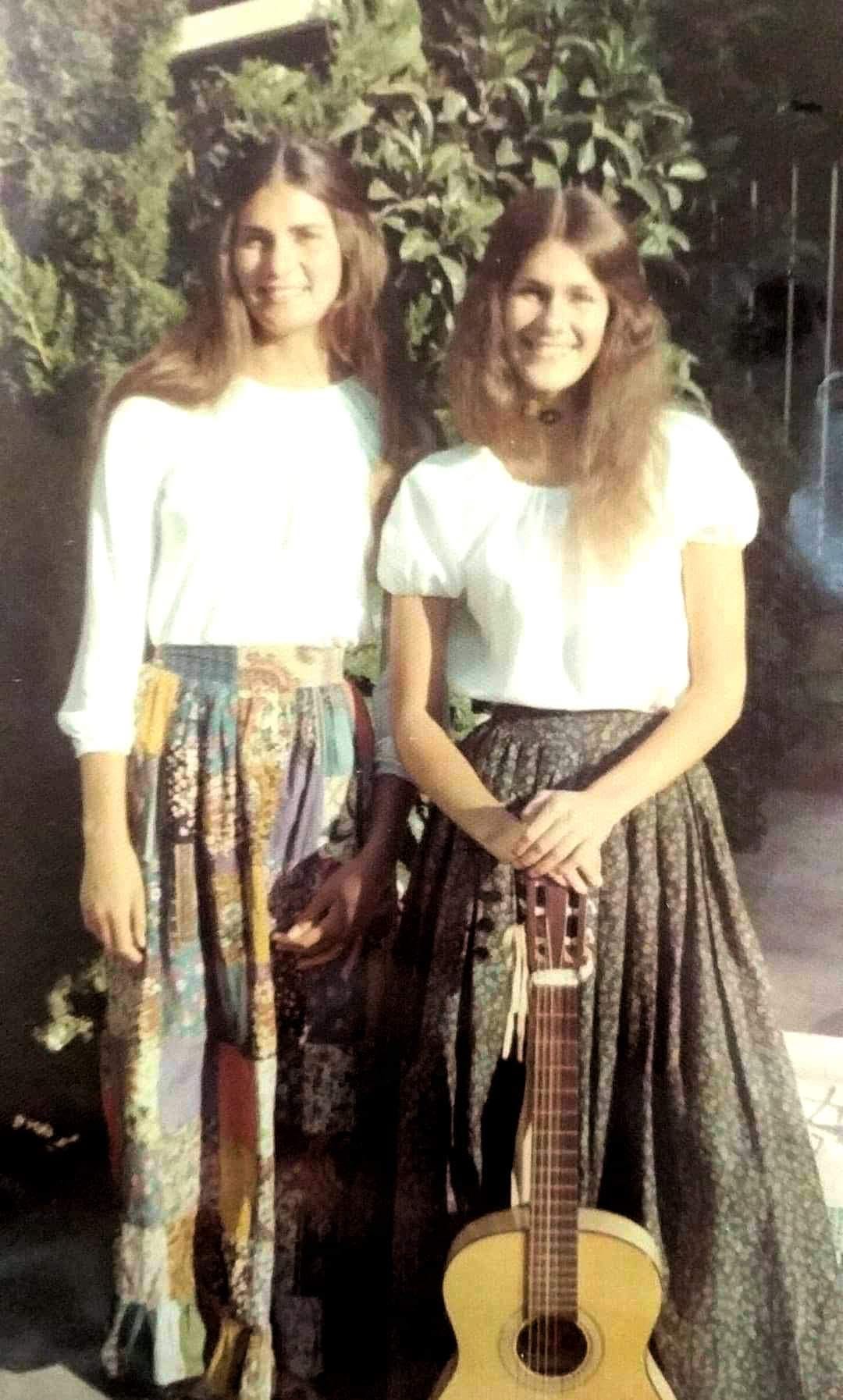
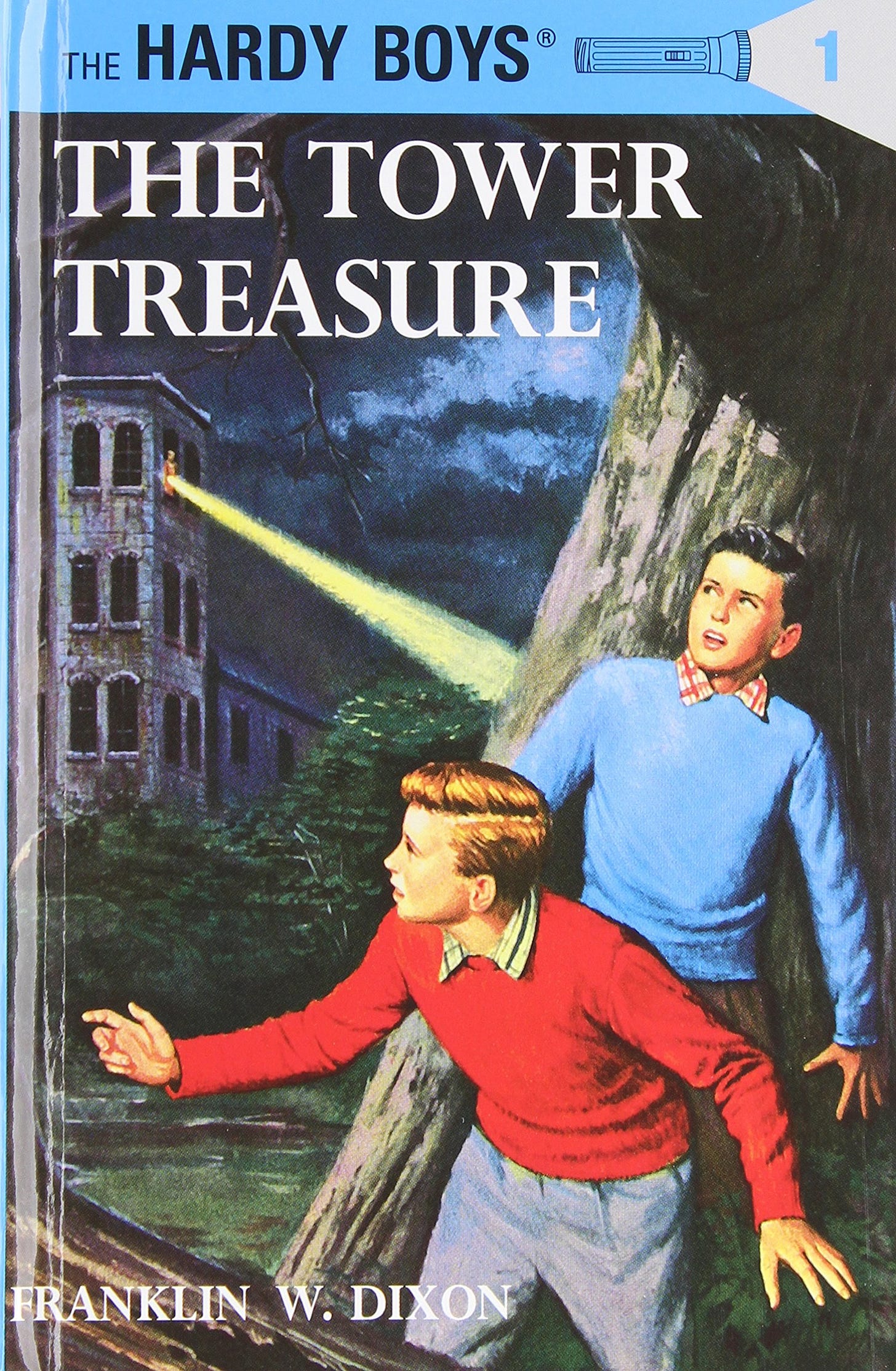

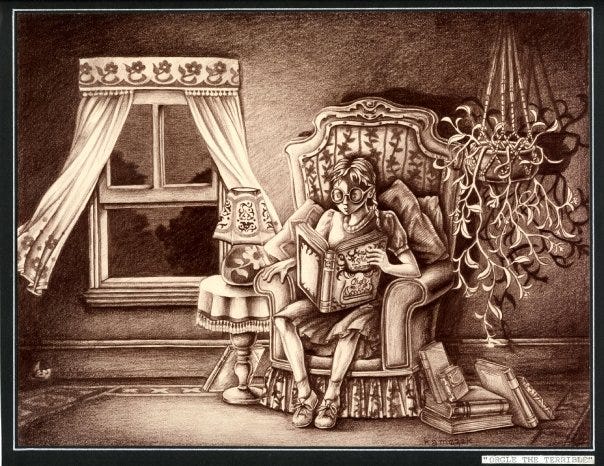
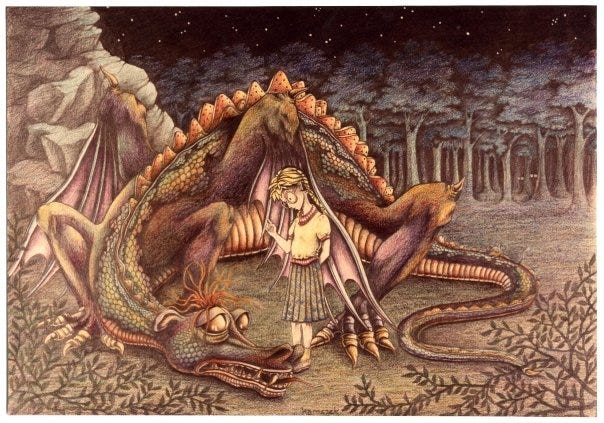
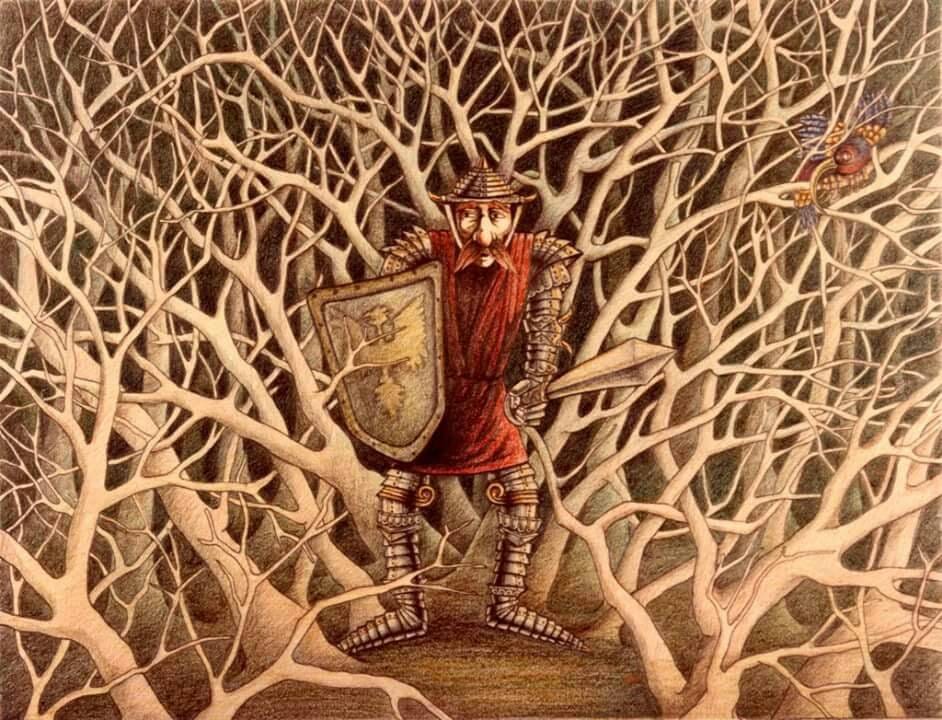
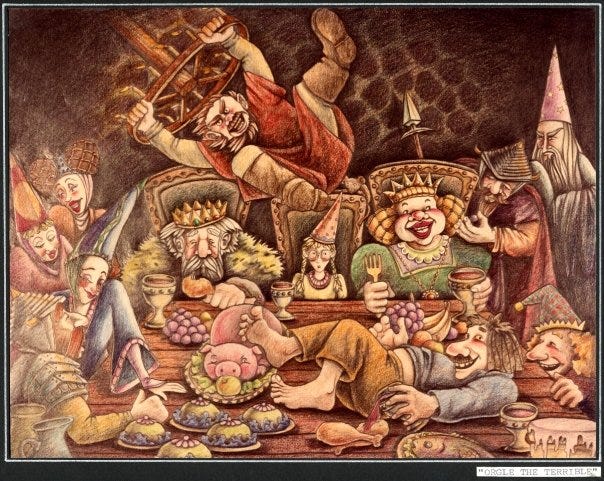
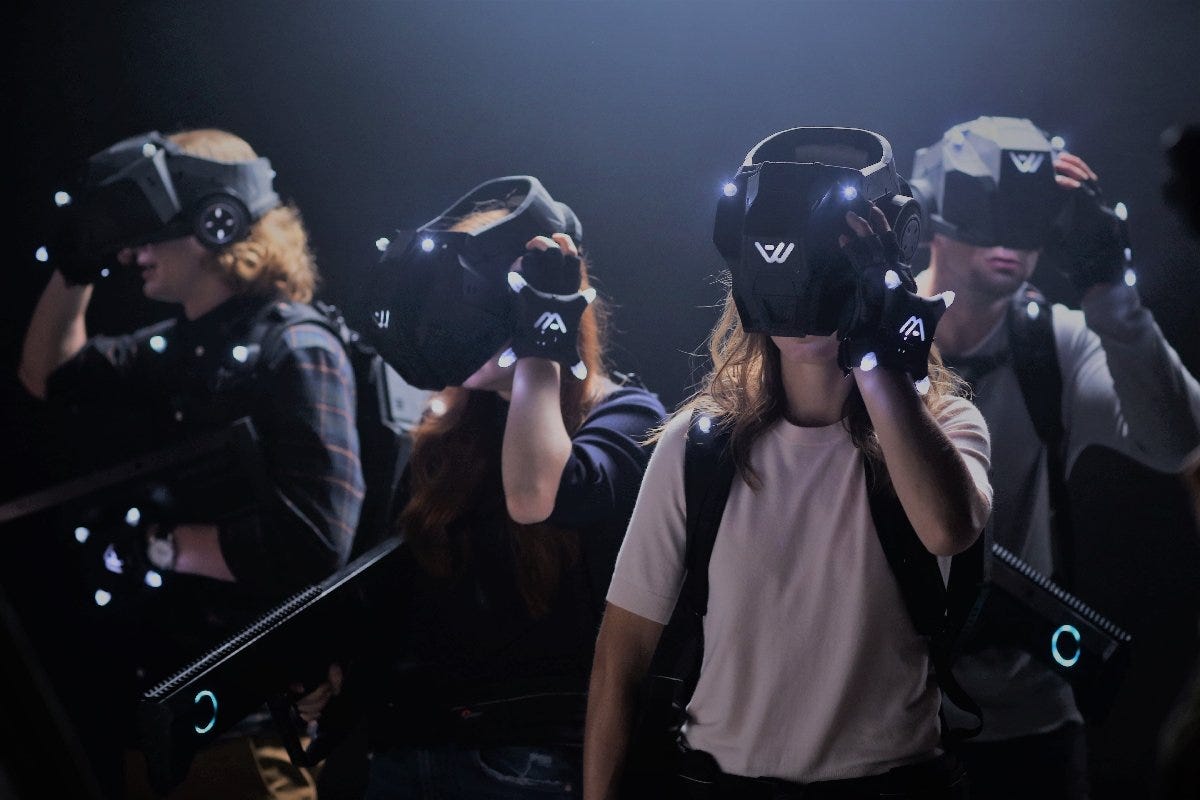
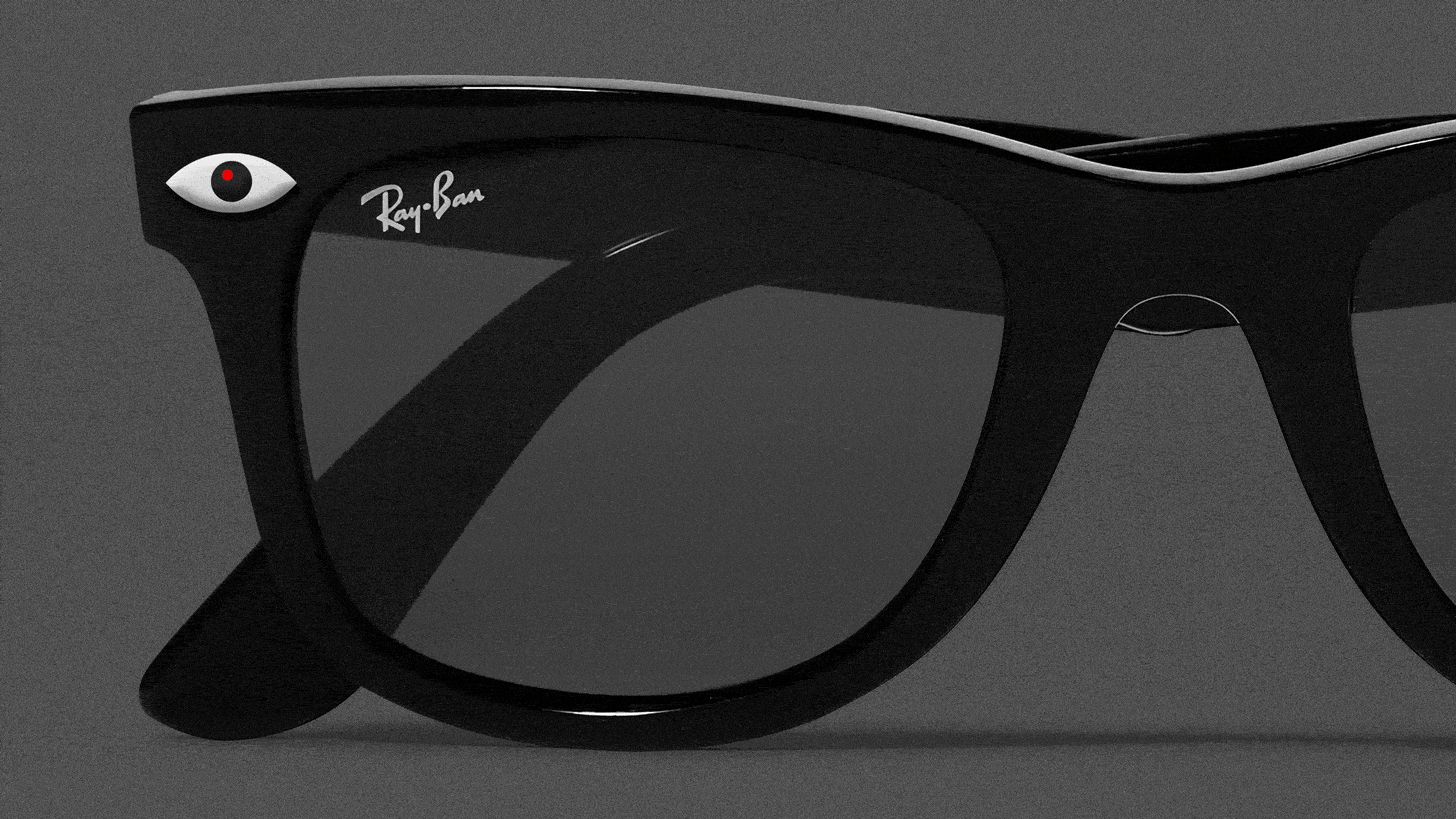
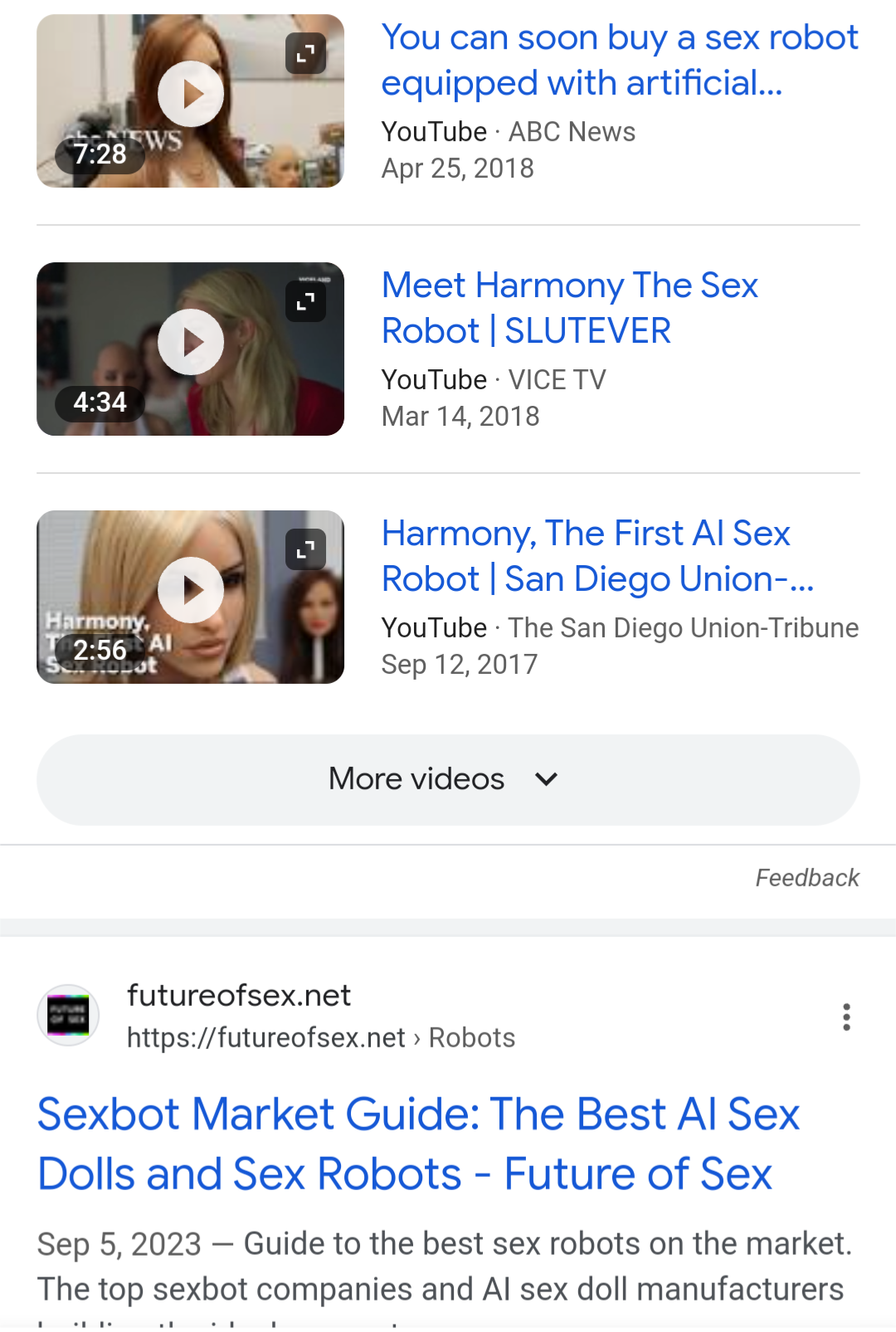
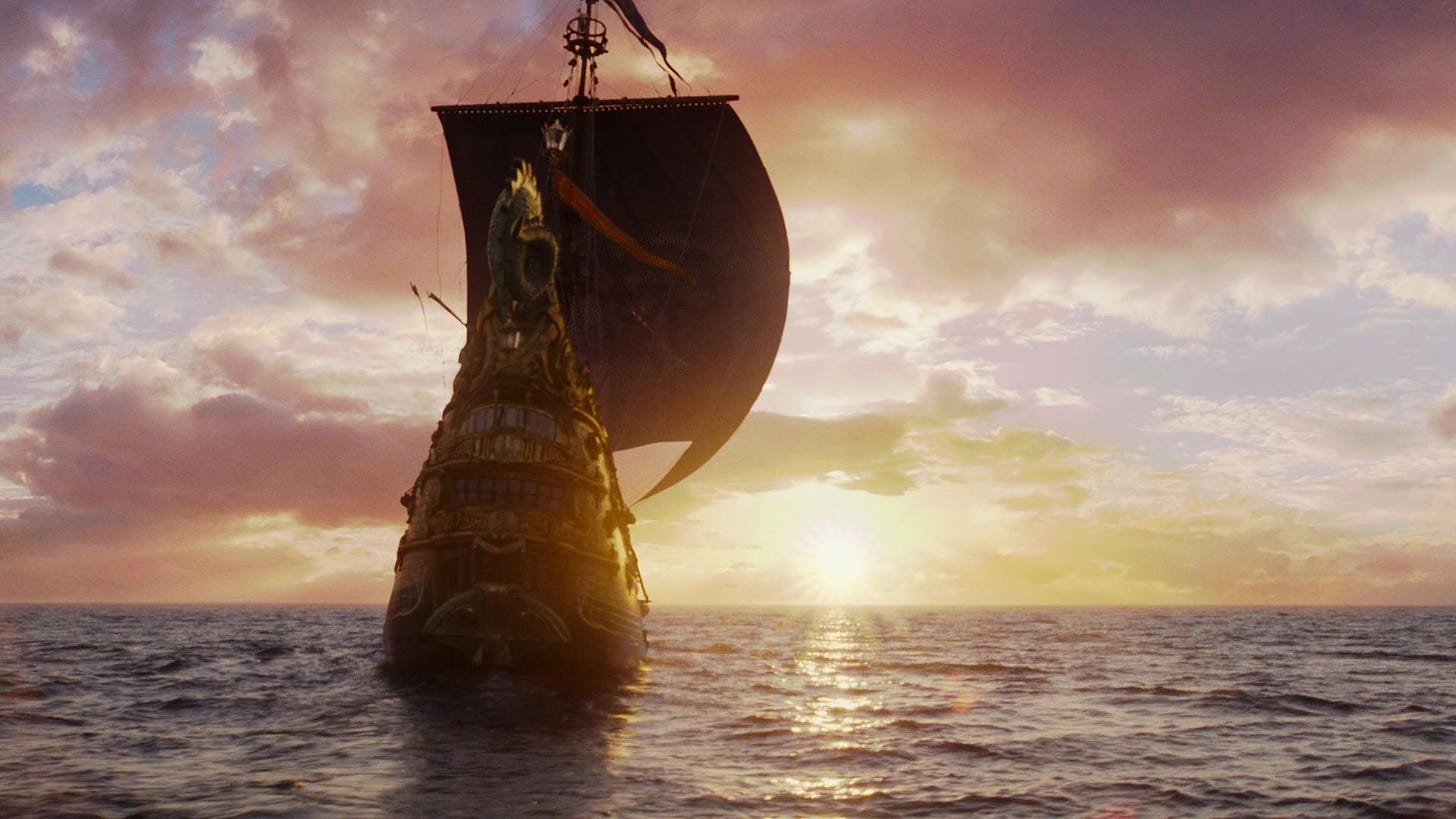
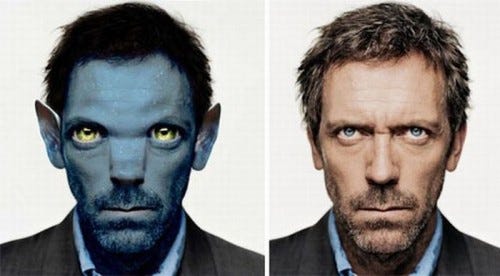
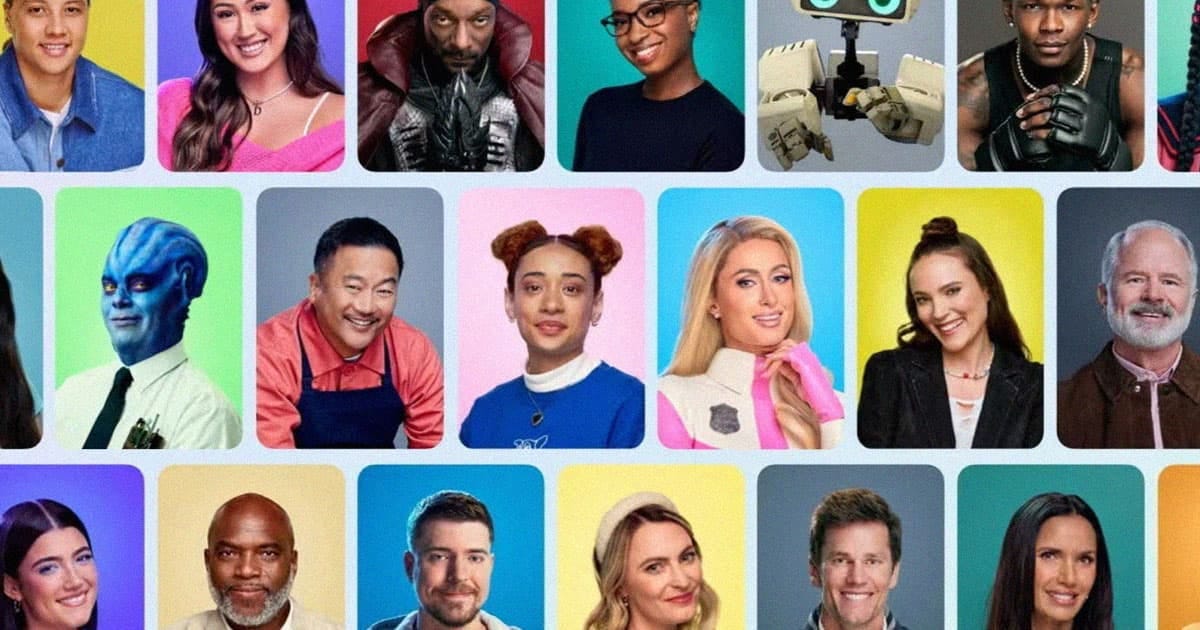
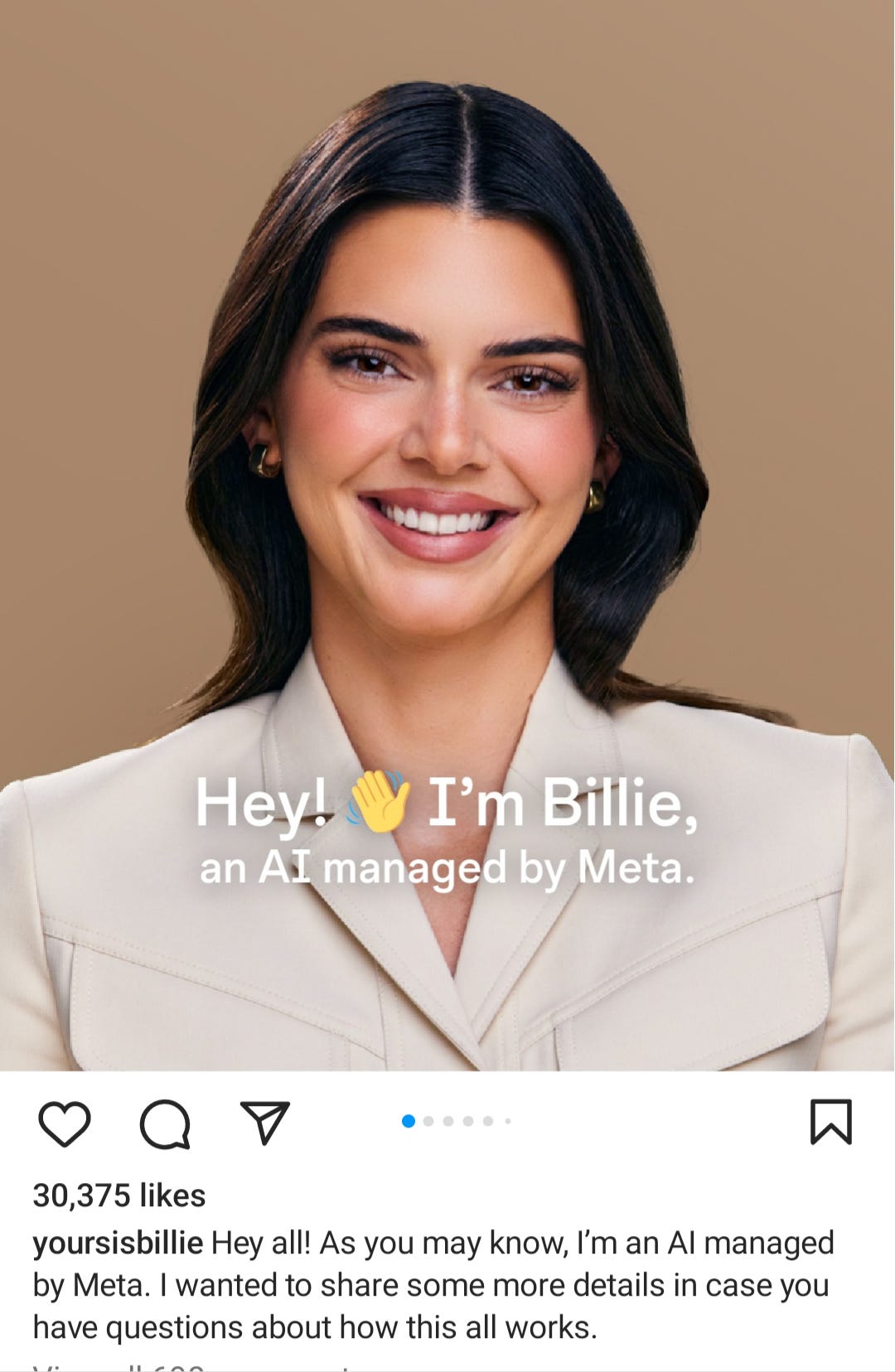
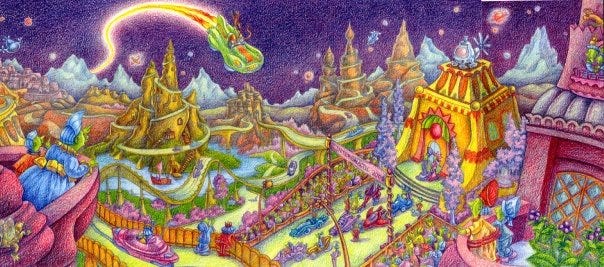
As always, an essay that gets right to the heart of what it means to be human, and free. Thank you, Karen.
Our imagination is our greatest power, and anything that disrupts, co-opts or otherwise interferes with it will destroy us. Period.
This is at the heart of the trans issue for many in that predicament. My son went trans suddenly last year. In the years leading up he was exposed to very strong online cultures. Imagine first how many children have separated parents and so are given smart phones in order to keep in contact with the other parent. Imagine all of the kids who flunked out of crappy lockdown virtual school and learned to live online, because access to friends there was an escape from being stupid (lockdown school), isolated (no social), nihilistic no-future prospects (climate doom, covid contagion murder, the world is racist and bigoted and f'd), and an increasing discomfort with the body (virtual life begets dissociation and an increasingly negative physical experience).
I realize later the disastrous consequence of these factors, and some more, upon young people like my son, my son who now wishes to surgically remove hated parts and lives closeted by the feared whims of mundane actual people who might not *see* him for the woman he *really* is.
Imagine access to porn as a gateway to discovering first that you are gay (because why else would a boy respond to those kinds of videos), then that you are a furry, then that you are not even your own body..... In addition to an infinity of fetishes and dangerous sexual attachments. Imagine how the young have been taught to righteously affirm each other over identity, without any embodiment to their interactions.
If you want to imagine what these kinds of experiences might be like:
E45. October 15, 2021 Helena a detransitioner on Gender a Wider Lens podcast. Very interesting insights about trans culture and what the trans experience is like and about.
Look up Helena Kerschner, including mothers day article 2023 ON PITT
Also this:
16 year old wrote an incredible essay to wake us up to how ubiquitously children are accessing porn, and how it is shaping and influencing them.
https://www.thefp.com/p/why-are-our-fourth-graders-on-pornhub
Now imagine the import of the developing virtual world after reading the above essay. Some unknown They could manipulate them into hellish insanity. Even without a They, the structure is enough for disaster.
I'm working hard to imagine the Back to Basics movement where young and old detox from fake life in favor of adhering to embodied knowledge and relationships. Grass has already become a woo woo earthing phenomenon (you can pay to be guided through the experience), and maybe it could for some become enhanced only by an imagination exposed to simpler mediums, like the written word, and less by the imagination shaped by more engrossing fake mediums.
When my son was little, he was part of a play school in which a hot topic for the parents and staff was the effect of movies and media on not just the child who watches, but on the greater community of children. There was a strong sentiment that children's fantasy play and behaviors became overwhelmed when even one or two children were on Disney. The children became Other as they would play out what they had seen. They would obey the mandate to explore being (not pretending) the characters. Play was not simply what each person naturally was, but became an artifice of play.
For my son the impact was profound. One encounter with kung fu characters led to acting out fighting upon peers. Scary things became spirits which could be seen and spoken to. Friends had to engage, and be corrected to align with the manipulated other-created fantasy, or disengage when overwhelmed.
What does maturity look like, even for us adults of a prior generation, in encountering these kinds of manipulations upon our imagination, framing, meaning-making, self-concepts?